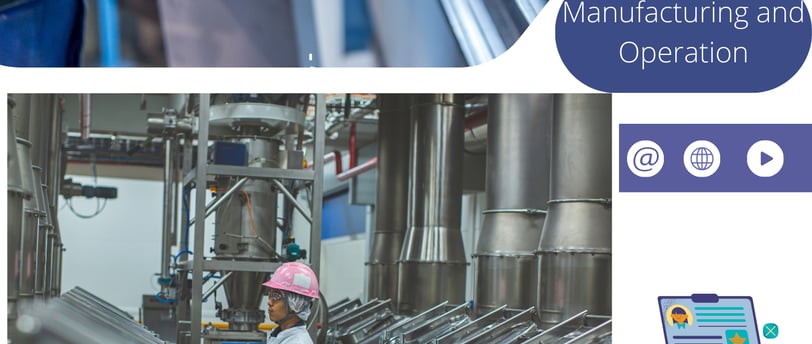Effective Strategies for Recruiting Skilled Workers in Manufacturing and Operations
The manufacturing and operations industries face a significant challenge in recruiting skilled workers. With a shortage of skilled labor and increasing competition, companies must adopt innovative strategies to attract and retain top talent...
9/12/20242 min read


The manufacturing and operations industries face a significant challenge in recruiting skilled workers. With a shortage of skilled labor and increasing competition, companies must adopt innovative strategies to attract and retain top talent. Here are effective strategies for recruiting skilled workers in manufacturing and operations:
Implement Lean Manufacturing:
Eliminate waste, reduce variability, and improve flow to increase efficiency and productivity. In today’s fast-paced and competitive market, optimizing manufacturing and operations is crucial for businesses to stay ahead.
Invest in Automation:
Leverage technology to streamline processes, enhance accuracy, and reduce labor costs strategies for success
Embrace Industry 4.0:
A guide for manufacturers industry 4.0, also known as the Fourth industrial revolution, is transforming the manufacturing sector. It combines physical and digital technologies to create a more production process such as connectivity, data analytics, artificial intelligence (AI), cloud computing, cybersecurity, digital twin, workforce development, collaboration, and continuous improvement.
Focus on Professional Manufacturing Quality Control:
Implement robust quality control measures to ensure consistency and excellence in products. Set a clear quality and standards for training quality metric and monitoring.
Develop a Skilled Workforce:
Invest in training and development programs to upskills your workforce and drive business growth.
Increase efficiency and productivity
Reduce waste and costs
Improve product quality and consistency
Enhance customer satisfaction
Drive business growth and competitiveness.
6. Optimize Supply Chain Management:
Streamline logistics, manage inventory effectively, and build strong relationships with suppliers. Effective supply chain management also involves building strong relationships with suppliers, implementing risk management strategies, and continuously monitoring and evaluating performance to drive improvement.
Continuously Improve:
Encourage a culture of continuous improvement, encouraging employee feedback and suggestions.
Embrace Sustainability:
Implement eco-friendly practices, reduce waste, and promote sustainability throughout your operations.
Foster Collaboration:
Encourage cross-functional collaboration, breaking down silos to drive innovation and success. Optimize supply chain management by streamlining processes, reducing costs, and improving customer satisfaction through demand forecasting, inventory optimization, supplier rationalization, leveraging technology, data analysis, strong supplier relationships, and risk management.
By implementing these strategies, manufacturing and operations companies can effectively recruit skilled workers, address the labor shortage, and drive business success. Remember, investing in your workforce is investing in your company's future.
